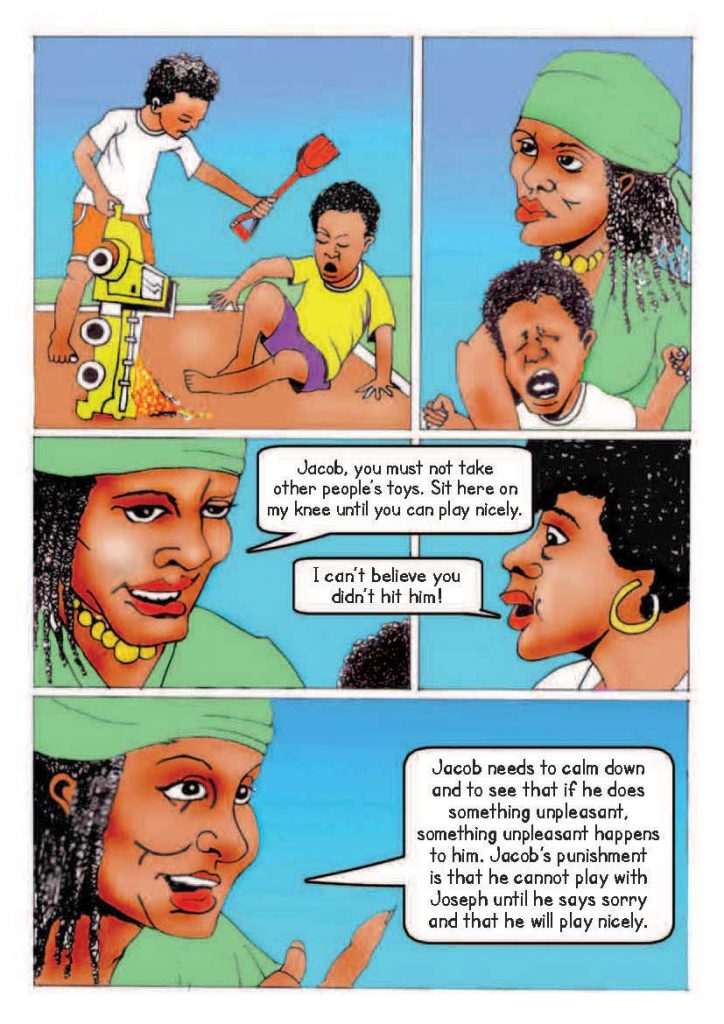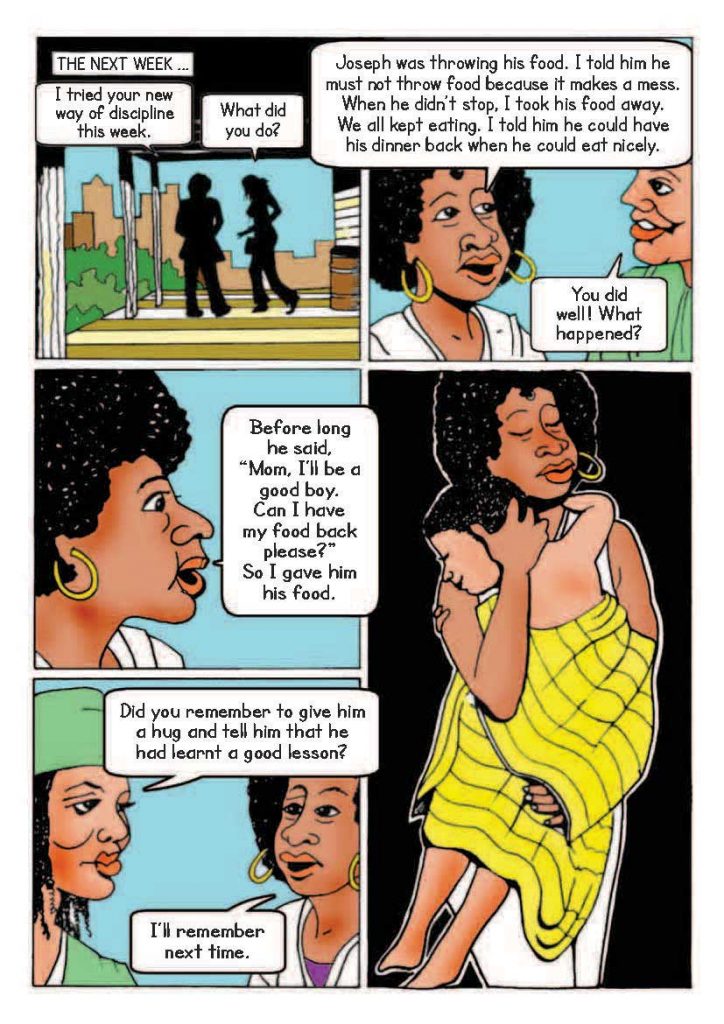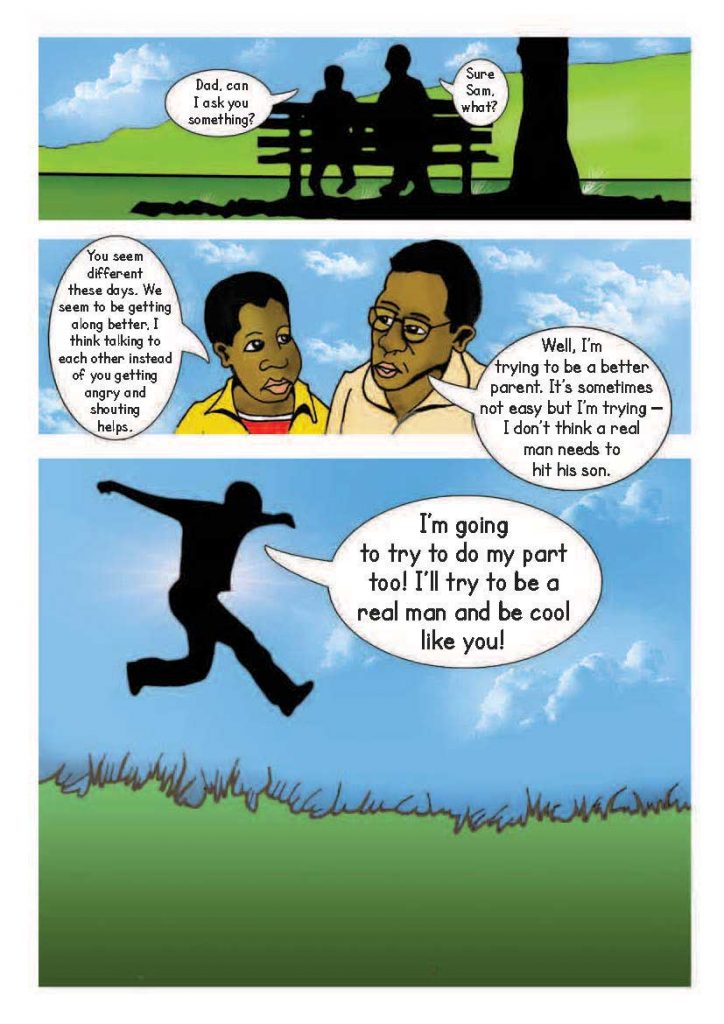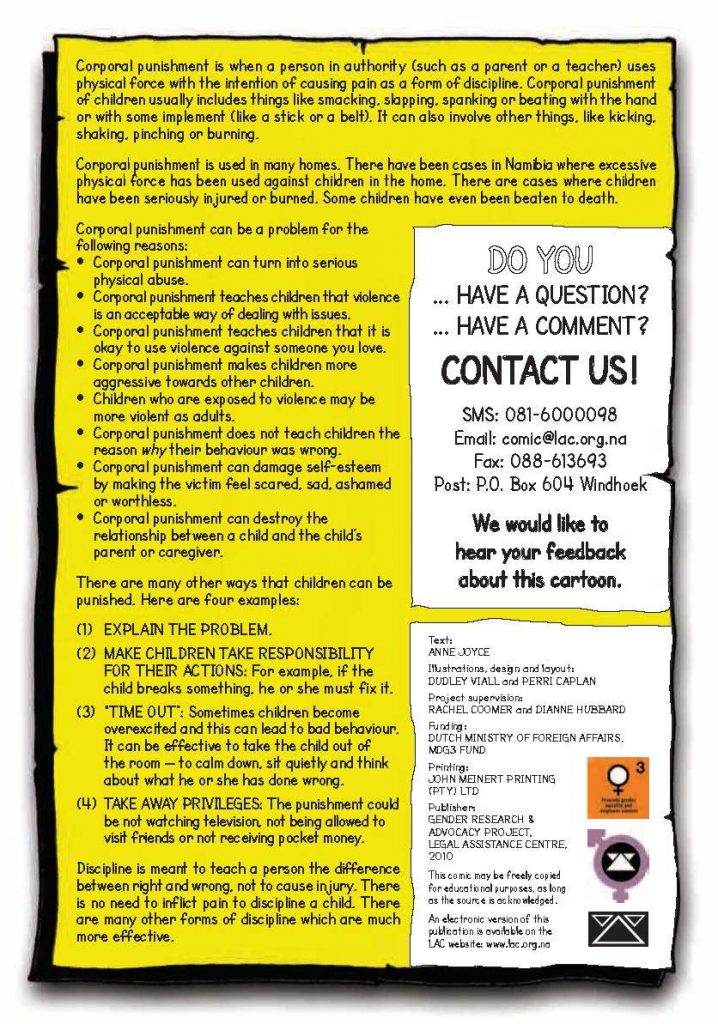
Corporal punishment is when a person in authority uses physical force with the intention of causing pain or discomfort for disciplinary purposes. Corporal punishment of children usually includes things like smacking, slapping, spanking or beating with the hand or with some implement (like a stick or a belt). It can also involve other things, like kicking, shaking, pinching or burning.
Many international and regional agreements to which Namibia is a party guarantee respect for human dignity and prohibit the use of degrading treatment or punishment. The legal position on corporal punishment in Namibia centres around Article 8 of the Namibian Constitution, which protects human dignity and prohibits “cruel, inhuman or degrading treatment or punishment”.
Shortly after Independence, the Namibian Supreme Court ruled that corporal punishment by any “organ of state”, which includes corporal punishment in government schools and as a punishment for adult or juvenile criminal offenders, violates the constitutional protection for human dignity.
This ruling was codified with respect to both government and private schools in section 56(1) of the Education Act 16 of 2001, with the High Court confirming in the 2016 case of S v Van Zyl & Others that the provisions of s 56(1) are applicable to private schools, and that no consent either from the parents or from the learner can nullify or invalidate the prohibition.
The Child Care and Protection Act 3 of 2015 provides that parents or anyone else with control of a child must respect the child’s constitutional right to dignity. The current draft stops short of explicitly outlawing corporal punishment in the home, since our courts have not yet examined the meaning of dignity in this context. It draws on the language of the African Charter on the Rights and Welfare of the Child, and attempts to provide a basis for allowing law and practice to evolve towards greater respect and protection for children’s dignity in the administration of discipline.
However, when it comes to alternative care, the Act unequivocally forbids corporal punishment at places of safety, places of care (such as a crèche or a day care centres) early childhood development centres or residential care facilities for children.
Promoting alternative discipline
GR&AP believes that corporal punishment in the family can be damaging to the dignity and development of the child, given that it takes place in the context of what is supposed to be one of the closest and most loving relationships in a child’s life. Research all over the world shows clear links between corporal punishment and domestic violence later in life, given that corporal punishment links violence with love and models violence as a problem-solving strategy. GR&AP is available to conduct workshops aimed at educating community members about alternatives to corporal punishment.
Educational materials
Printed materials
To help promote alternatives to the use of corporal punishment, GR&AP has produced the following :
-
- Factsheet on corporal punishment (can be printed as a poster) available in English, Afrikaans or available in a factsheet/poster format in Otjiherero and Nama/Damara
- Factsheet on links between corporal punishment & GBV (English)
- Comic: Alternatives to corporal punishment (disciplining young children) available in English, Afrikaans,
- Comic: Alternatives to corporal punishment (disciplining teens) available in English, Afrikaans
- Training guide for adults (English)
- Training guide for children (English)
- Article on corporal punishment in private schools
Visual materials
-
- A 45-minute film entitled A Betta Way, which is an educative tool with a compelling(and humorous) story about alternatives to beatings (on request available in DVD in English, Oshiwambo, Oshiherero, or Damara-Nama
- An animation based on our comic about alternatives to corporal punishment.

International and local research on corporal punishment is summarised in a report entitled Corporal punishment: National and International Perspectives, published by GR&AP in 2010.
Key issues form this report are summarised in a shorter research brief.
“Corporal punishment of children: summary of research on its impact and associations” a briefing prepared by the Global Partnership to End Violence Against Children
and End Corporal Punishment | October 2021
Read articles from our archives on corporal punishment:
- Discussion calls for effective alternatives (2010)
- Dignity, non violence and respect for the law (2013)
- Corporal punishment A ruthless nightmare (2015)




















